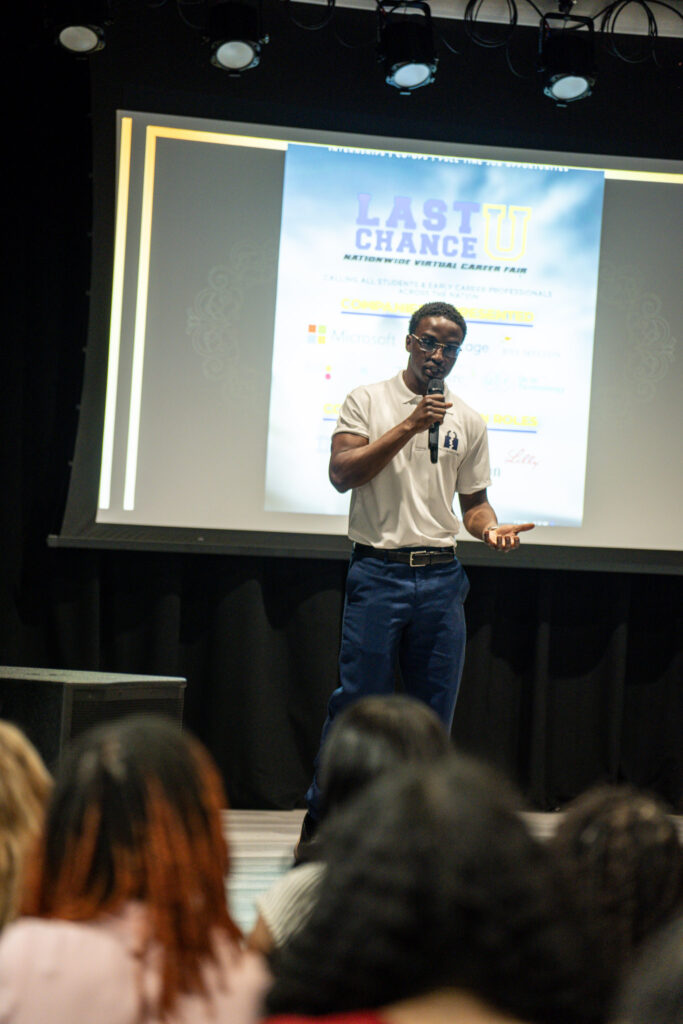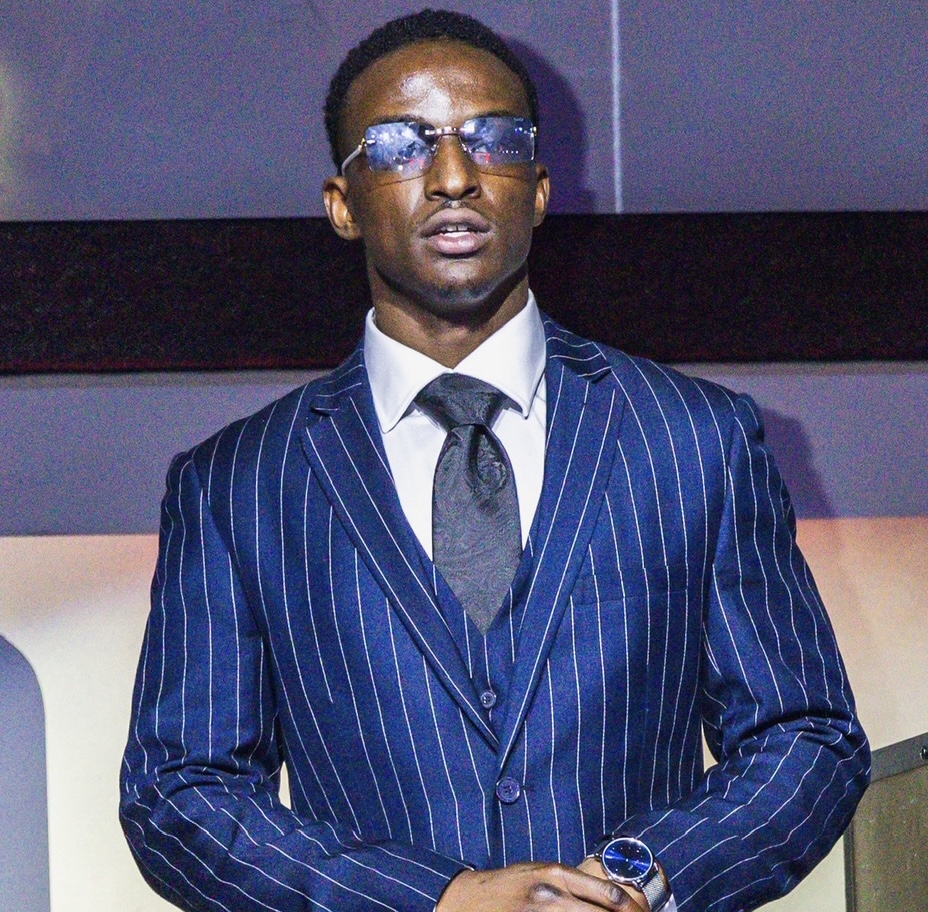Conventional schooling likes to slot young people into majors and career tracks that keep the mechanisms of industry and progress moving forward. But is that really how life works? For Bilal Issifou, changing direction while in college was the right path for him — and we’re all going to benefit from his course change.
For the majority of universities and colleges, Career Fairs hold the potential for future internships and jobs upon graduation. But for many students, confusion, and barriers are all that they’re experiencing. They’re still trying to figure out who they are and what truly interests them. Meanwhile, society is trying to funnel them into careers that will allegedly support their dreams, aspirations, and pursuit of successful livelihoods. The reality is that there is a disconnect between those seeking opportunities and those offering opportunities.
For Bilal, just trying to get his foot in the door to land an internship was quite a challenge. As a pre-law student attending a STEM-focused school, companies were recruiting engineers. Unable to land an internship, a peer of his introduced him to the program manager for her internship. That’s how he landed a position with the Office of Civil Rights with the North Carolina Department of Transportation.
“I was helping minority business enterprises land government contracts. This is where I witnessed first-hand the struggles people were having in terms of access points to job opportunities. Reflecting on my own challenging experiences, I realized I wanted to do something about this situation, to help students not go through what I had. But I couldn’t conventionally solve the problem.”
That’s when Bilal came up with the idea of Unchained, Inc., which he describes as, “… a tech-based start-up company with a social professional platform that bridges the gap between Gen Z professionals, recruiting teams, and campus organizations.”
With DEI so much in the news, over the past decade, diverse, early career professionals have found even more barriers to employment and career paths that keep them from moving up the corporate ladder. So Bilal has intended to introduce and create connections between HBCU students and corporate recruiters and partners. In this process, students entering the job market will have already been vetted while still matriculating.

“When a company partners with us, they get more exposure and more engagement with early careers and HBCUs. We have services to strategize with our partners. What we offer is that our team becomes an extension of your team; we’re coaching your team on how to engage, communicate, and market to the students on all campuses, and how to evaluate your processes to ensure that you don’t have any biases and that you can appeal to the demographic you’re serving. We’re very intentional about not just providing a transactional but transformative service because, at the end of the day, we’re sending our students and professionals and our community to you.”
Bilal stresses the importance of interpersonal and in-person connections. How this works is that Unchained, Inc. offers clients hybrid solutions so that they can leverage the Unchained platform and its database to extend their reach of candidates. “If you’re a company, you’ve only budgeted for a certain number of schools, the schools on our platform or within our network now become a part of your pipeline. We take it a step further because we believe that a lot of companies focus on corporate branding, but not campus branding. The students’ opinions matter. So, building a relationship with the students is the easiest and fastest way to fostering that pipeline.”
In Bilal’s own experience, that pipeline didn’t speak to his aspirations. Believing that becoming a lawyer was his destination, he discovered something that spoke to a greater intrinsic desire within himself: being of service. “It wasn’t until my first internship that I realized I had many other skill sets. I had to question what I was doing, and where I was going. I realized that I didn’t necessarily want to work for the government doing contracts. What my internships forced me to do is get out of the status quo mindset.”
Bilal extrapolated what he was discovering about himself and the school-to-corporate-job-pipeline with its multiple barriers into a business providing a resource center to help career services around the world run more efficiently.
“You can’t do anything alone. I think change starts with support and action on all sides to create a more vibrant ecosystem for future professionals. Employers have to be open to the new ideas that will shift their company and then for professionals, to not let their ambition die. Because at the end of the day, no one can give you ambition. You have to seek ambition for yourself.”


